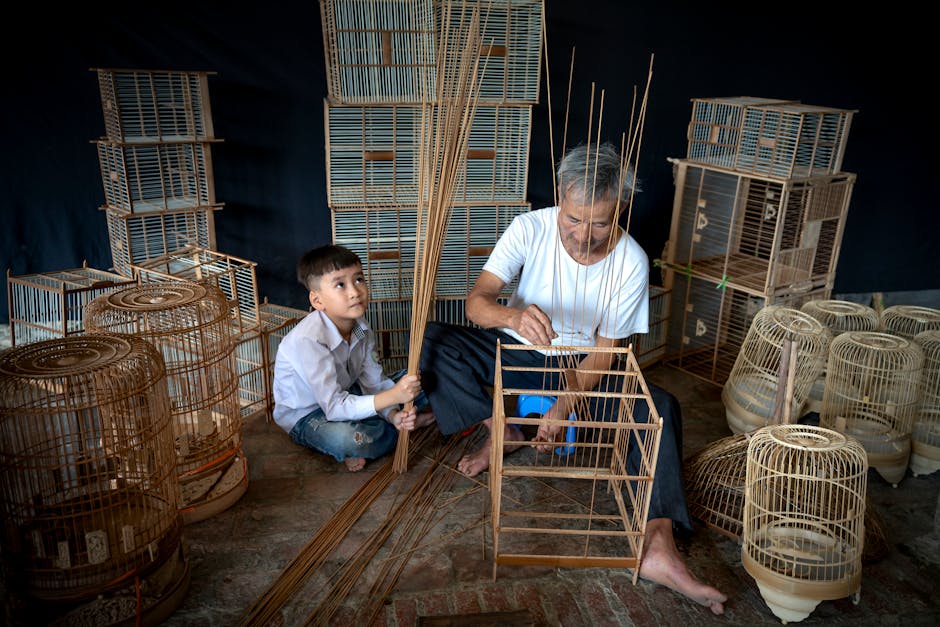The pursuit of hobbies and crafts is a deeply personal journey, often fuelled by a desire for self-expression and creative fulfillment. For many, this path is not trod alone. A mentor a skilled practitioner who provides guidance, support, and inspiration can significantly accelerate progress and deepen appreciation for the chosen craft. This article delves into the invaluable role of mentorship within the world of hobbies and crafts, exploring its multifaceted benefits and the enduring impact it can have.
A crucial element in the growth of any hobbyist or crafter is the acquisition of knowledge and technique. A seasoned mentor, with their years of experience, can offer invaluable insight into the nuances of a craft, sharing not only the practical steps but also the underlying principles. Imagine learning to throw pottery, for instance. A mentor could teach more than just the proper hand positions and the subtle art of centering clay. They might reveal the different firing temperatures and their impact on the final product, explain the significance of varying glaze combinations, or even impart a deep understanding of the history and cultural context of pottery.
Beyond the technical aspects, mentorship in crafts often fosters a deeper appreciation for the craft itself. A skilled mentor can illuminate the subtle beauty and intricacies of the work, helping the mentee connect with the aesthetic values and practical considerations inherent in the craft. This personal connection and the understanding of the artistry involved elevates the hobby from a mere pastime to a truly enriching experience. This is particularly valuable for crafts demanding an intuitive touch, like calligraphy, where the fluid strokes and expressive gestures require a practiced eye and hand.
A significant aspect of mentorship lies in the provision of constructive feedback. This isn’t about criticism for the sake of it; instead, it’s about providing thoughtful guidance that encourages growth. A seasoned embroiderer, for example, can offer detailed observations on an apprentice’s stitches, pointing out potential improvements in tension, pattern interpretation, or colour selection. Such feedback, received with an open mind and a willingness to learn, becomes an invaluable tool in the journey of self-improvement.
Mentorship also plays a pivotal role in fostering a supportive community. Experienced crafters frequently establish a network of fellow practitioners. This can provide a platform for sharing experiences, knowledge, and even inspiration. For beginners, this network of mentors and peers can prove invaluable. Through shared projects, workshops, or online forums, the mentee can build a supportive community, encouraging continued engagement and creativity.
The impact of mentorship extends beyond the technical and the aesthetic. A dedicated mentor can often provide invaluable motivation and emotional support. The journey of learning a craft can sometimes be challenging, fraught with setbacks and moments of frustration. A mentor, with their own past experiences to draw upon, can offer encouragement during these moments, helping the mentee to persevere and discover their strengths. This emotional support is just as crucial as the technical guidance, especially for new crafters who may be working with unfamiliar materials or concepts.
Moreover, mentorship can spark inspiration and generate new ideas. By exposure to a wide range of styles and approaches, an eager student can develop their own unique perspective. A mentor may introduce techniques or styles entirely unfamiliar to the mentee, thus broadening their horizons and fostering innovation. Imagine a young weaver learning from an experienced artisan who explores intricate tapestries. This introduction to complex patterns and innovative materials may lead to new directions in the mentee’s own weaving journey.
Finding a suitable mentor is often a personal quest, taking into consideration individual learning styles and preferred methods of interaction. Some crafters find the guidance of a local instructor beneficial, whilst others may find online resources and communities more accessible. It is crucial to look for someone whose skills and passion align with your own aspirations, and who can offer the specific guidance and support you need to progress.
Ultimately, mentorship in the realm of hobbies and crafts can be instrumental in personal growth. It’s not just about acquiring skills or techniques; it’s about cultivating a deeper understanding and appreciation of the craft itself. The influence of a skilled mentor can provide invaluable insight, encouragement, and emotional support, ultimately enriching the crafting experience and shaping personal growth in the creative process. The guiding hand of a mentor can lead a hobbyist on a journey of self-discovery and artistry, inspiring and empowering them to reach new heights in their chosen field.
